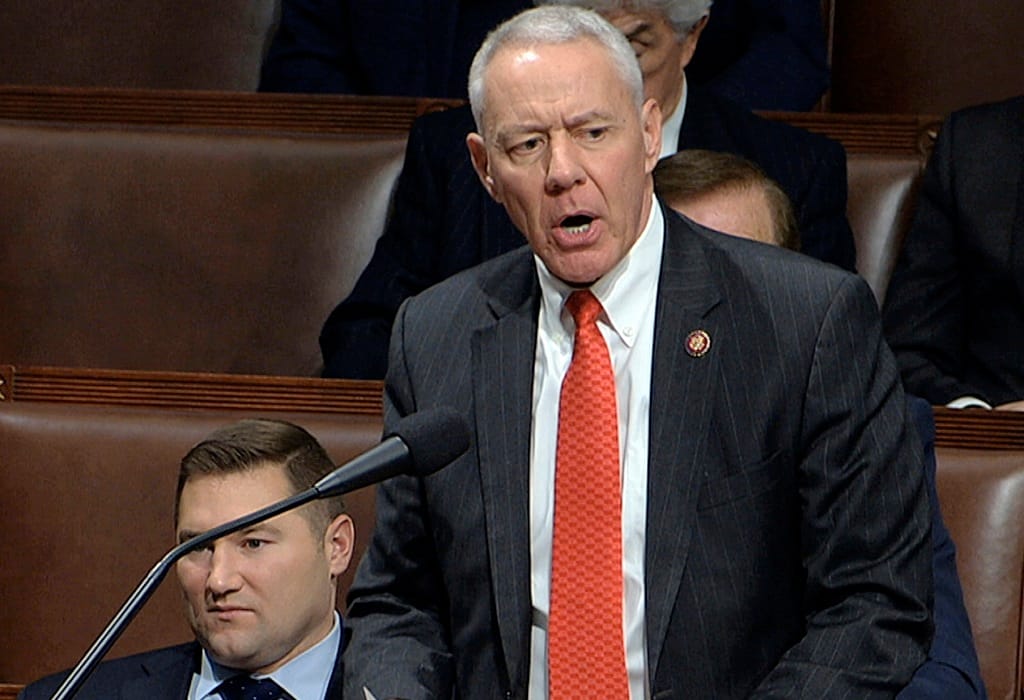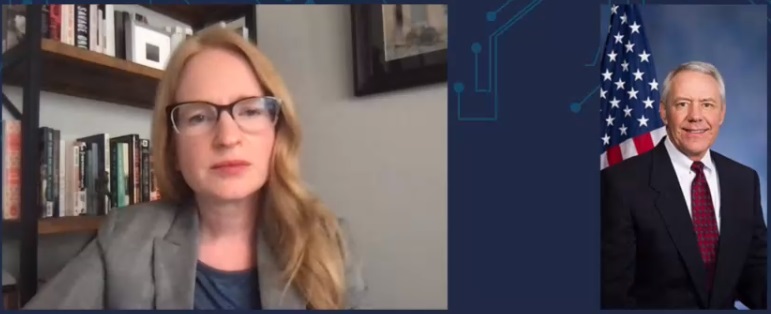Repealing Section 230 Would be Harmful to the Internet As We Know It, Experts Agree
While some advocate for a tightening of language, other experts believe Section 230 should not be touched.
Benjamin Kahn

WASHINGTON, September 17, 2021—Republican representative from Colorado Ken Buck advocated for legislators to “tighten up” the language of Section 230 while preserving the “spirit of the internet” and enhancing competition.
There is common ground in supporting efforts to minimize speech advocating for imminent harm, said Buck, even though he noted that Republican and Democratic critics tend to approach the issue of changing Section 230 from vastly different directions
“Nobody wants a terrorist organization recruiting on the internet or an organization that is calling for violent actions to have access to Facebook,” Buck said. He followed up that statement, however, by stating that the most effective way to combat “bad speech is with good speech” and not by censoring “what one person considers bad speech.”
Antitrust not necessarily the best means to improve competition policy
For companies that are not technically in violation of antitrust policies, improving competition though other means would have to be the answer, said Buck. He pointed to Parler as a social media platform that is an appropriate alternative to Twitter.
Though some Twitter users did flock to Parler, particularly during and around the 2020 election, the newer social media company has a reputation for allowing objectionable content that would otherwise be unable to thrive on social media.
Buck also set himself apart from some of his fellow Republicans—including Donald Trump—by clarifying that he does not want to repeal Section 230.
“I think that repealing Section 230 is a mistake,” he said, “If you repeal section 230 there will be a slew of lawsuits.” Buck explained that without the protections afforded by Section 230, big companies will likely find a way to sufficiently address these lawsuits and the only entities that will be harmed will be the alternative platforms that were meant to serve as competition.
More content moderation needed
Daphne Keller of the Stanford Cyber Policy Center argued that it is in the best interest of social media platforms to enact various forms of content moderation, and address speech that may be legal but objectionable.
“If platforms just hosted everything that users wanted to say online, or even everything that’s legal to say—everything that the First Amendment permits—you would get this sort of cesspool or mosh pit of online speech that most people don’t actually want to see,” she said. “Users would run away and advertisers would run away and we wouldn’t have functioning platforms for civic discourse.”
Even companies like Parler and Gab—which pride themselves on being unyielding bastions of free speech—have begun to engage in content moderation.
“There’s not really a left right divide on whether that’s a good idea, because nobody actually wants nothing but porn and bullying and pro-anorexia content and other dangerous or garbage content all the time on the internet.”
She explained that this is a double-edged sword, because while consumers seem to value some level of moderation, companies moderating their platforms have a huge amount of influence over what their consumers see and say.
What problems do critics of Section 230 want addressed?
Internet Association President and CEO Dane Snowden stated that most of the problems surrounding the Section 230 discussion boil down to a fundamental disagreement over the problems that legislators are trying to solve.

Changing the language of Section 230 would impact not just the tech industry: “[Section 230] impacts ISPs, libraries, and universities,” he said, “Things like self-publishing, crowdsourcing, Wikipedia, how-to videos—all those things are impacted by any kind of significant neutering of Section 230.”
Section 230 was created to give users the ability and security to create content online without fear of legal reprisals, he said.
Another significant supporter of the status quo was Chamber of Progress CEO Adam Kovacevich.
“I don’t think Section 230 needs to be fixed. I think it needs [a better] publicist.” Kovacevich stated that policymakers need to gain a better appreciation for Section 230, “If you took away 230 You would have you’d give companies two bad options: either turn into Disneyland or turn into a wasteland.”
“Either turn into a very highly curated experience where only certain people have the ability to post content, or turn into a wasteland where essentially anything goes because a company fears legal liability,” Kovacevich said.











Member discussion